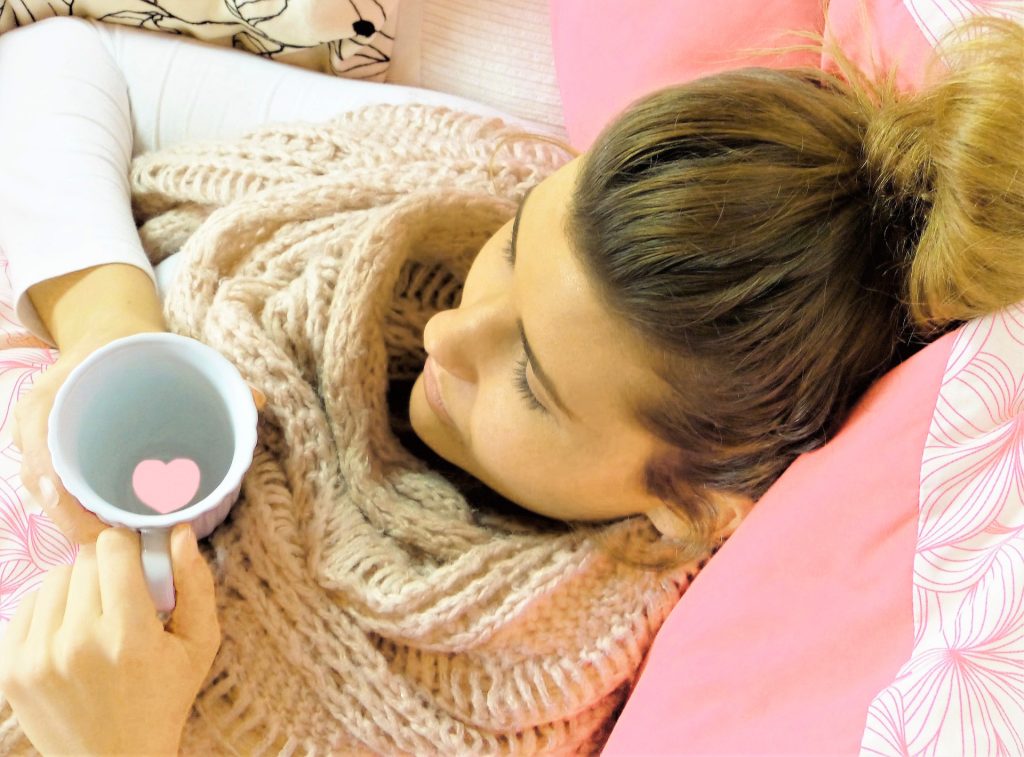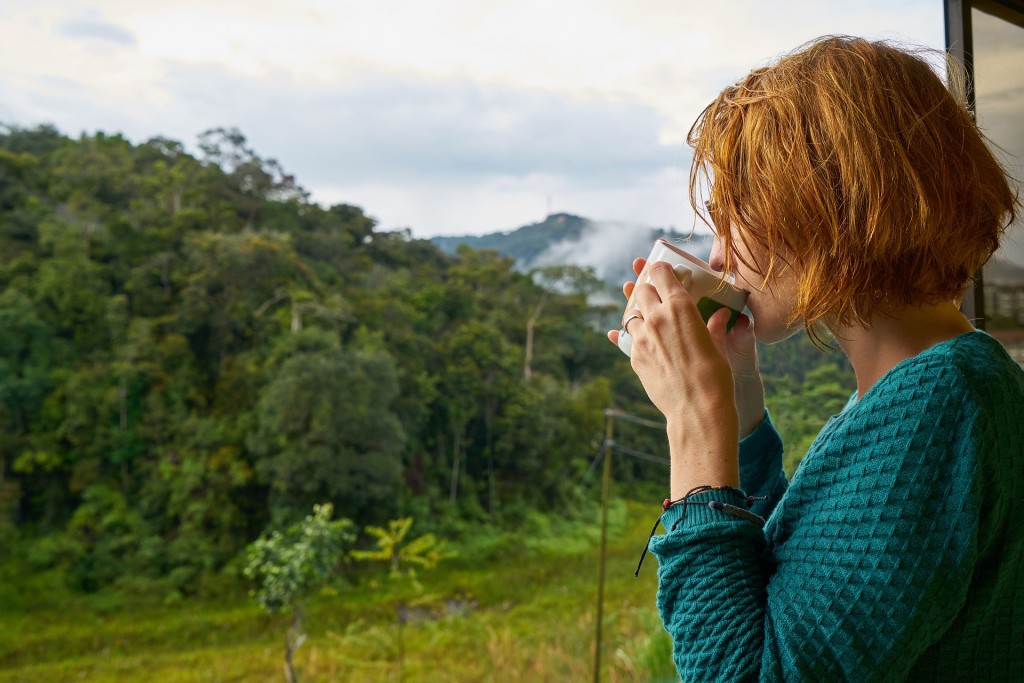Current Facts:
The Coronavirus may not show signs of infection for many days. Most people have recovered from it without any complications.The people at the highest level of complications are those over 65, especially if they have medical conditions, such as diabetes, heart disease, lung disease, etc. The treatment for people at the low-risk categories is not different than the flu; rest, increase hydration (room temp water, green tea or warm water with lemon), and Tylenol for fever. Ibuprofen and its derivatives such as Aleve and Advil are NO LONGER RECOMMENDED as they may increase viral replication.Stay calm, self-isolate as much as possible, and practice viral containment techniques you have heard in the news.
How do you know if you’re infected?
• Emergency warning signs include:
• Significant breathing difficulty or shortness of breath (more pronounced than the shortness of breath you have when you have cold or flu symptoms or are anxious)
• Persistent pain or pressure in the chest
• Confusion and/or difficulty with ambulatory movement
• Bluish lips or face.
Note: This list is not all-inclusive. Please consult your medical provider for any other symptoms that are severe or concerning.
Does having asthma or environmental allergies increase one’s risk?
Yes. But there are steps you can take steps to lower your risk: Social distancing.Washing your hands often with soap and warm water for 20 to 30 seconds,Not touching your eyes, nose or mouth.Staying away from people who are sick. Limit contact with people outside your family as much as possible. Maintain enough distance (six feet or more) between yourself and anyone outside your family.Clean and disinfect high-touch surfaces in your homes, such as counters, tabletops, doorknobs, bathroom fixtures, toilets, phones, keyboards, tablets, and bedside tables.Continue taking your asthma medicines as prescribed. If you do get sick, follow your asthma action plan and call your doctor.
Are kids immune to the virus?
Children can develop COVID-19. However, they tend to experience milder symptoms, such as fever, runny nose, and cough. Some children have had severe complications, but this has been less common. Children with underlying health conditions may be at increased risk for severe illness.
Will the upcoming warm weather and heat diminish the outbreak?
Viruses, like the common cold and flu, spread more when the weather is colder. But it is still possible to become sick with these viruses during warmer months. At this time, we know that the virus is killed at temperatures of 56 degrees celsius, but we do not know whether the spread of COVID-19 will decrease when the weather warms up.Keep your body warmDrink hot tea or warm water with lemon whenever possible, avoid cold drinksKeep you body dry.Using an infrared or regular non-public sauna if you have one available may behelpful.
How vital is Hydration?
VERY. Your immune system needs water to operate more efficiently.
Is it possible to catch it from food handlers?
As it’s been reported, there is still a lot that we do not know about this virus. Although It’s not clear if an infected person can spread it through the food they have handled or prepared, but if so, it would more likely be the exception than the rule.The virus has been detected in the stool of some individuals. And so, we currently cannot rule out the possibility of the infection being transmitted through food by an infected person who has not thoroughly washed their hands. In the case of hot food, the virus would likely be killed by cooking. This may not be the case with uncooked foods like salads or sandwiches.
What about face masks, do they work?
A face mask is not a guarantee that you won’t get sick – viruses can also transmit through the eyes, and tiny viral particles, known as aerosols, can penetrate masks. However, masks are effective at capturing droplets, the main transmission route of transmission. Some studies have estimated a roughly fivefold protection versus no barrier alone (although others have found lower levels of effectiveness).
When to wear a face mask:
If you are likely to be in close contact with someone infected, a mask cuts the chance of the disease being passed on. If you’re showing symptoms of Coronavirus, or have been diagnosed, wearing a mask can also protect others.Masks are crucial for health and social care workers and are also for family members who need to care for someone who is ill – ideally, both the patient and carer should have a mask.
Please Note: It is believed at this point in the epidemic that masks will likely make little difference if walking around town or taking a bus. As such, there is no need to bulk-buy a vast supply, especially given the current shortage.
Disinfectants:
What we know today is that the coronavirus loses its ability to infect after exposure to different commonly used disinfectants.
Heat and Sunlight:
This virus is very sensitive to heat. The WHO has reported that 56°C kills the coronavirus. Sunlight cuts the virus’s ability to grow in half. So, spend time in the sun while still self-isolating.
Self-Assessment:
1. If you have a runny nose and sputum, it’s a common cold; likely not the virus.
2. Coronavirus pneumonia usually presents with a dry cough with no runny nose.
3. This virus is heat-sensitive and will be killed by low temperatures. It hates the sun. Spend some time in the sun while maintaining social-distance and keep yourself as warm as possible.
4. If someone sneezes with it, it takes about 10 feet before it falls to the ground and is no longer airborne.
5. If it falls on a metal surface, it will live for at least 12 hours. So, if you come into contact with any metal surface – wash your hands as soon as you can with a bacterial soap.
6. On fabric, it can survive for 6-12 hours. Regular laundry detergent will kill it.
7. Drinking warm water is effective in helping to kill for all viruses. Do not drink icy liquids.
8. Wash your hands frequently. The virus can only live on your hands for 5-10 minutes. However, much can happen during that time – you can rub your eyes, pick your nose unwittingly, and so on.
9. You should also gargle as a preventative measure. Akasha Naturals Throat Support is our go-to formula to clear virus particles from the throat. Or a solution of salt in warm water will suffice if need be.
10. THE SYMPTOMS: The virus first infects the throat leading to a sore throat that lasts 3-4 days.The virus then enters the lungs, causing pneumonia. This takes about 5-6 days.Pneumonia first presents with high fever and difficulty in breathing. The occurring nasal congestion is not like the usual kind. You feel like you’re drowning. Should this occur, it’s imperative that you seek immediate attention.

















